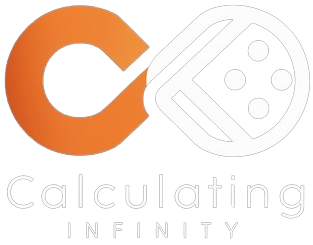Ethereum Basis (EF) is contemplating implementing a proper battle of curiosity coverage following backlash over two distinguished builders becoming a member of EigenLayer as advisors.
Govt director Aya Miyaguchi addressed the difficulty in a social media submit, emphasizing the significance of sustaining credible neutrality inside the group. She stated the inspiration shares the group’s considerations and is dedicated to sustaining belief.
Miyaguchi stated:
“It is clear that relying on culture and individual judgment has not been sufficient, and we have been working on a formal policy to address this problem for a while now. We will be accelerating this work and will share an update soon.”
Controversy
The controversy started on Could 18 when distinguished crypto dealer Jordan Fish, often called Cobie, publicly questioned Ethereum co-founder Vitalik Buterin in regards to the ethics of EF builders receiving important monetary incentives from tasks constructed on the community.
Cobie’s tweet particularly used EigenLayer for example and sparked widespread dialogue on social media about potential conflicts of curiosity. He wrote:
“How do you feel about Ethereum Foundation core developers or researchers taking life-changing packages from projects built on Ethereum to become ‘advisors,’ when those projects may have conflicted incentives with Ethereum, either now or in the future? For example — purely theoretically, of course — let’s say, EigenLayer.”
Following Cobie’s tweet, Ethereum Basis researcher Justin Drake disclosed his advisory function at EigenLayer on Could 19. Drake revealed that he acquired a considerable incentive in Eigen tokens, estimated to be value hundreds of thousands of {dollars} over a three-year vesting interval.
The disclosure heightened considerations about transparency and potential conflicts of curiosity between EigenLayer and the Ethereum Basis. Drake additionally acknowledged that the knowledge had been public since Could 3, and the timing of the disclosure with Cobie’s tweet was a coincidence.
On Could 21, one other Ethereum Basis researcher, Dankrad Feist, additionally disclosed his advisory function at EigenLayer. Feist, identified for his work on “danksharding,” confirmed he had additionally acquired a major allocation of EIGEN tokens and warranted the group that his advisory function wouldn’t affect his positions on the event of EigenLayer.
Battle of curiosity considerations
The disclosures have raised questions on potential conflicts of curiosity, particularly given the systemic dangers EigenLayer would possibly pose to Ethereum. EigenLayer is a platform that permits customers to deposit and “re-stake” Ether from numerous liquid staking tokens to safe third-party networks or validated companies.
Many blockchain specialists have expressed considerations in regards to the potential centralization and extra load imposed on stakers by operating restaking companies.
Drake assured the group that he would reinvest or donate all proceeds to worthy tasks inside the Ethereum ecosystem and pledged to finish the advisorship if EigenLayer’s path conflicted with Ethereum’s pursuits.
Feist, in his disclosure, emphasised that he would take contrarian views on EigenLayer to deal with dangers and decentralization. He wrote:
“I am taking this position personally, not representing the Ethereum Foundation, and with a focus on risks and decentralization. I do receive a significant amount of tokens from this position. I do not believe that they will change or influence my positions on how the core protocol should be developed, but I believe that the community should know about this so that they can keep me accountable.”
The Ethereum Basis’s transfer to formalize a battle of curiosity coverage marks a major step in addressing the group’s considerations and sustaining belief inside the ecosystem. The inspiration is anticipated to offer additional updates on the coverage quickly.


